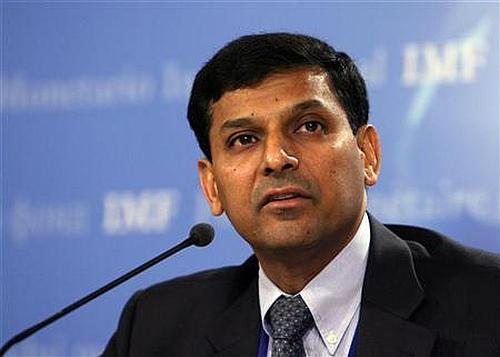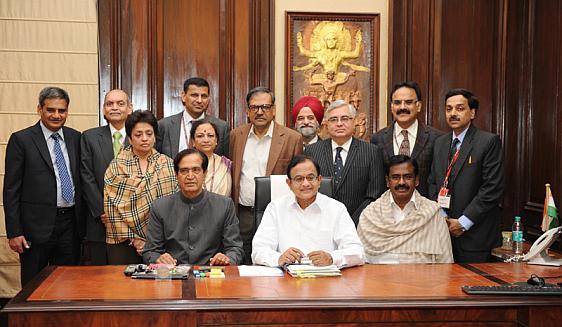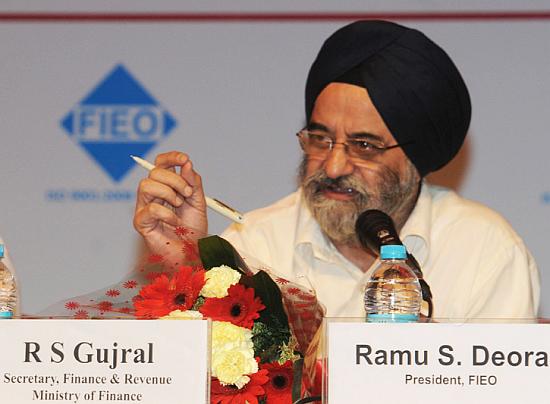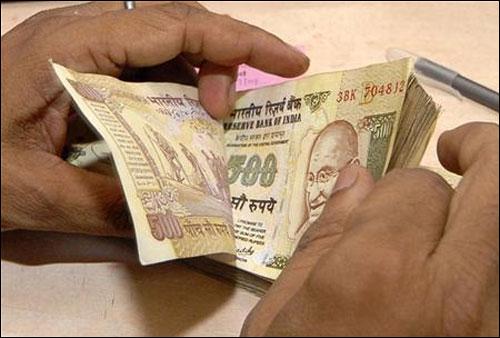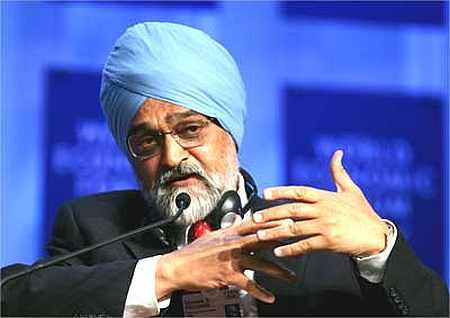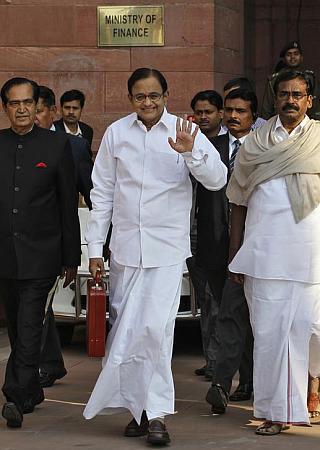 | « Back to article | Print this article |
How Chidambaram reined in fiscal deficit
Three months ago, Chief Economic Advisor Raghuram Rajan said the fiscal deficit target of 5.3 per cent (of the gross domestic product) set by his boss, Finance Minister Palaniappan Chidambaram, was difficult to achieve.
Rajan's observations, in the mid-year analysis of the economy in December, were mild compared to the serious doubts raised by independent agencies on the credibility of Chidambaram's fiscal consolidation roadmap.
Rajan did a U-turn in the Economic Survey released on February 27 and said the target of 5.3 per cent was achievable.
And, a day later, Chidambaram surprised everyone by saying the fiscal deficit for 2012-13 was contained at 5.2 per cent. He stuck to his projection of 4.8 per cent for 2013-14.
How did the finance ministry do that, despite a Rs 63,857-crore (Rs 638.57 billion) shortfall in total revenue receipts and a substantial increase in subsidies by Rs 67,639 crore (Rs 676.39 billion)?
A compression of almost Rs 92,000 crore (Rs 920 billion) in Plan expenditure helped Chidambaram keep his promise. And the man who spearheaded the whole exercise was Finance Secretary R S Gujral.
He had been shifted from the revenue department to expenditure by Chidambaram in August last after the tax proposals in the last Budget, when Pranab Mukherjee was the finance minister, sent investors into a tizzy.
Click NEXT to read more...
Complete coverage: Union Budget 2013-14
How Chidambaram reined in fiscal deficit
It seems that the exercise started as soon as Chidambaram took over in August.
In October every year, the finance ministry starts to take stock of all expenditure and revenue, in meetings with various ministries and departments, and begins to revise the estimates.
Even before the meetings could begin, Gujral, with Chidambaram's blessings, started sending out missives to the departments to warn them against bunching expenditure in the last quarter.
Those which did not take the warning seriously saw a cut in their allocations for the year. The finance ministry relied on an existing guideline that was seldom used in the past.
It says that a department cannot spend more than one-third of its allocation in the last quarter of the financial year (January-March) and more than 15 per cent in the last month. Unlike previous years, the norm was followed in letter and spirit this time.
The rule was enforced because, year after year, it was seen that officials in various ministries spent a large chunk allotted to them in the last quarter.
And, in their hurry to spend the amount in a short period of time, they transferred money to ill-thought-out, badly-planned programmes.
Click NEXT to read more...
Complete coverage: Union Budget 2013-14
How Chidambaram reined in fiscal deficit
In many cases, officers just released the funds in the last few months without even getting proper utilisation certificate from the states or the implementing agencies.
It is a statement, usually issued by a state government and certificated by auditors, that the money provided in the past has been used; once the department or agency which was been allocated the money produces it, the finance ministry releases the next tranche of funds.
This, in turn, bred corruption and despite a huge sanction of funds, actual work on ground took years to materialise.
The departments which saw a massive cut in allocations included road transport & highways, environment & forests, power, minority affairs, planning, atomic energy, IT & communications, economic affairs and health & family welfare.
"What we did during the discussions on the revised estimates was first to check their unspent balances and utilisation certificates. We said if the certificate is not available for funds which were provided two years earlier, no further money can be given. If the certificate is not there for 2011-12, then the ministry can spend up to 75 per cent of the budget allocation and beyond that it will have to take permission," says Gujral.
Click NEXT to read more...
Complete coverage: Union Budget 2013-14
How Chidambaram reined in fiscal deficit
The finance ministry stated that if a state or agency was unable to give utilisation certificate for the past two years and the amounts are small, they can return the unspent money and become eligible for fresh funds.
In a few cases, the finance ministry also found that certain societies and public sector undertakings, or PSUs, had huge cash balances. Instead of spending the money, they were parking it in banks to earn interest.
In case of a defence PSU, firstly the finance ministry found the advances were nearly equivalent to three years of its annual revenue but it explained that work was in progress.
Then it found the cash balance of that PSU was 1.4 times its annual revenue. The finance ministry cut the allocation of such departments, which had huge cash balance.
The ministry also changed a norm to link allocation to schemes instead of ministries. This was done to address the problem of independent agencies parking funds in banks.
Planning Commission, the custodian of all Plan expenditure, got jittery as the cuts would have meant a reduction in the targeted expenditure in the very first year of the 12th Five-Year Plan.
Ultimately, fiscal prudence prevailed over all arguments. Planning Commission was convinced that instead of posturing on the rationalisation of expenditure, it was prudent to accept the harsh reality.
Click NEXT to read more...
Complete coverage: Union Budget 2013-14
How Chidambaram reined in fiscal deficit
Chidambaram was candid that if departments have not been able to spend their allocated money, there was no point in giving a big rise in 2013-14.
As a result, Plan expenditure in 2013-14 is only 6.58 per cent higher than the initial estimate for 2012-13 but around 29 per cent higher than the revised estimates for the year.
"It is not a secret that we asked for more, but it would be irresponsible on the part of the Planning Commission to start posturing on the Plan in a period when the fiscal deficit has to be brought under control," says Planning Commission Deputy Chairman Montek Singh Ahluwalia.
Chidambaram may have met a challenging target last year, but the road ahead is not easy. His fiscal deficit target of 4.8 per cent next year cannot be met by another massive cut in Plan expenditure.
After taking a hit last year, ministries and departments have got wiser and may start seeking the funds from April.
Usually, ministries wait till the Budget is passed in Parliament before they demand their allocations.
After the Budget is passed in April, the allocations are taken and approvals sought which makes it May and June.
Click NEXT to read more...
Complete coverage: Union Budget 2013-14
How Chidambaram reined in fiscal deficit
By that time, monsoon arrives in most parts of the country, so no real work can be done on the ground, due to which no utilisation certificate is received.
The real work starts around October which leaves any ministry or department very little time to spend the entire amount, resulting in a lot of unused funds.
The finance ministry is not oblivious to it and has planned for it in advance. It will have a cash balance of about Rs 80,000 crore at the end of the year and the funds can be released from April.
"The rule always existed but no one applied it and there can be no better year to apply it when the fiscal deficit is worsening. In 2013-14, some change can be expected because all departments and ministries have been given instructions to start working from April 1, assuming that the Budget has been passed," says an official.
Chidambaram has already started taking meetings on the implementation of Budget announcements.
"We need to learn a lesson from this and what is quite important is that he (Chidambaram) has kept Rs 5,000 crore with the Planning Commission, which will be given to those ministries that actually do a good job in spending their annual allocations," says Ahluwalia.
